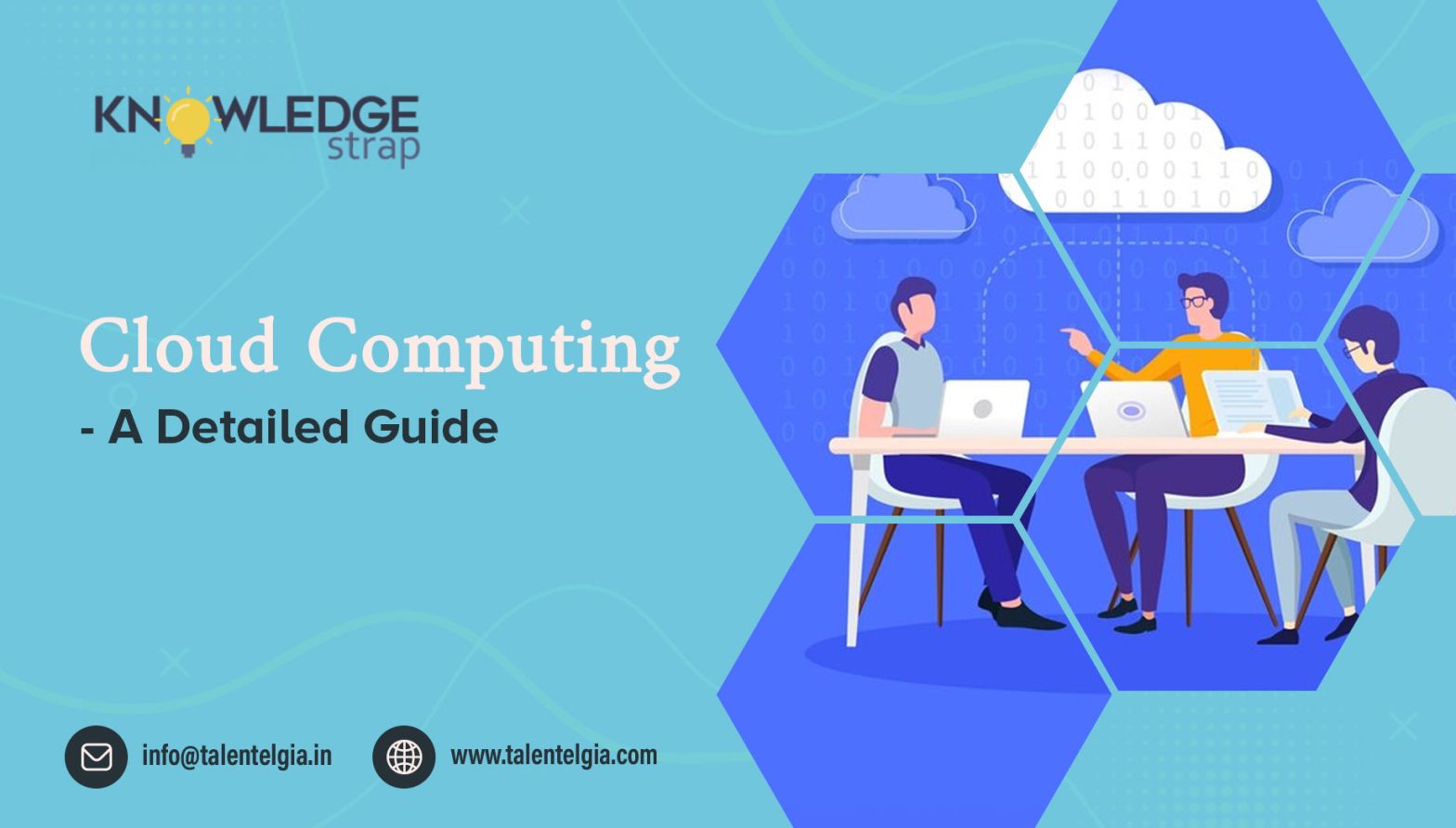Cloud computing service simplifies data storage, retrieval and handling. It saves costs and offers flexible solutions for running an enterprise.
Cloud computing helps businesses expand beyond the physical realms by removing the limitations like data storage and handling.
With them, you can store data on cloud servers without worrying about security or physical storage space. Moreover, this data is easily accessible whenever you need it.
The main reason for the increased demand for cloud computing services is affordability. Experts say that mid-size and small businesses report that utilizing cloud-based services to maintain their systems in-house is 40% more cost-effective.
If you have also been contemplating cloud services for your businesses, read below to enrich your information on these.
What is cloud computing?
Cloud computing is a term for storing and accessing data on servers. It enables businesses to deliver software products and services virtually – without worrying about the equi[ment required for storing large chunks of data.
Businesses are moving to cloud servers because they offer speed, efficiency, and security, simplifying storing, accessing, and updating data. It also saves the time and cost of data handling as the information is stored virtually on a server managed by third-party cloud service providers.
But before you migrate to a cloud server, it is also essential to know how cloud computing services work to make the right decisions that add to the growth of your enterprise.
Types of Cloud Computing Deployment models
The increased demand for cloud computing services has also increased the options. Therefore, it becomes necessary to familiarize yourself with the models and the types of cloud services before picking up a cloud services provider.
Cloud services vary depending on the type of deployment model they follow. There are three types of models you can choose from
Public Cloud
The public cloud is one of the simplest forms of cloud computing models. Here, the users usually pay for the services they need while the providers look after everything like administration, backups, troubleshooting, and capacity planning, maintenance. It can handle multiple projects simultaneously, making it suitable for several users.
Private Cloud
As the name suggests, a private cloud offers more security as it is not accessible to the general public. It uses a private cloud network and hardware not shared by anyone and also comes with the flexibility of choosing if you want the servers on or off-premises.
Hybrid
The hybrid models offer the freedom to use the private and the public cloud for their business. While the private cloud is apt for storing and sharing information, the public cloud is for less sensitive data.
Cloud computing services types
Cloud computing has evolved a lot in the last few years, which has increased the options available to users. Along with the models, they can also choose the service that suits them. There are three options they can consider:
Infrastructure as a Service (IaaS)
The most basic type of service suits firms with high IT expertise. They get cloud servers and storage space without worrying about installation and maintenance.
Platform as a Service (PaaS)
Platform as a service gives users the freedom to build their software and then host it on their platform. Therefore they can stop worrying about hardware and operating tasks and focus on deployment.
Software as a Service (SaaS)
Saas is one of the most refined services where users can handle their data through an application. They do not have to worry about downloading, installing, and storing data and can directly store it in the cloud.

Applications of cloud computing
Cloud computing services have made their way to all industries. They have evolved so much that they can support several business processes. Some of the applications that have made them a vogue in the online world are:
- Cloud servers offer unlimited space, solving the problem of storing data.
- Software applications handle several visitors and transactions, making cloud servers the right fit for financial, e-commerce, and productivity applications.
- GPS navigation apps are complex applications involving continuous data exchange; cloud servers make it easier.
Conclusion
Cloud computing services simplify work for entrepreneurs by helping them to manage and store data.
Efficient data handling means better results as your team focuses on better tasks and customers get access to better services and flawless services.
But the cloud services you choose can make all the difference. So be careful about the cloud service providers, migration, and deployment, and never shy to seek the advice of technical experts when in need!







